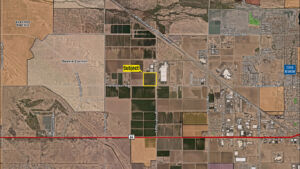Propify aims to change the way real estate is traditionally bought and sold.
Launching live in early April, Propify’s block explorer will change the way consumers search and browse properties, allowing consumers to navigate the real estate world through a social media application. The block explorer is dedicated to simplifying the searching process of properties, transactions, and real estate agents.
Propify is an Australia based no-portal real estate marketing company on a blockchain. Relying solely on an ecosystem of digital platforms to market real estate listings, it uses search engines and social media platforms such as Facebook, Instagram, Google, etc. to reach different audiences.
Companies like Zillow or Redfin are “portals” where properties are featured on a website and consumers access the site to view listings. The no-portal model allows properties to be proliferated across various platforms. The listing then has a better chance of gaining maximum exposure, according to Propify’s whitepaper.
CEO of Propify Joel Leslie, said the social media interface allows buyers to conduct a “lifestyle search” rather than just browsing houses. Clients can use hashtags to search a way of living and integrate the real estate experience in their daily social media engagements.
For example, using the block explorer, a buyer can enter “#3bedrooms, #ranchstyle, #westernliving” and the engine will mine various platforms to generate results best suited for the client’s vision.
Propify will collect information about listings then vet the accuracy of the information through the blockchain and publish it on the proprietary block explorer and across social media platforms, Leslie said. Through blockchain technology, Propify aims to increase transparency and maximize efficiency. It enables both parties to share data about any listing and transfer money or assets on a secure platform.
The idea is to join the social media industry with the portal industry, each valued at $500 billion and $100 billion respectfully. According to Statista, as of 2017, 81 percent of the United States’ population uses some kind of social media platform. Worldwide, 2.34 billion people are social media users. Aiming to reap the benefits of these numbers, Leslie is confident that by exposure to various demographics there is a future in social media real estate.
Andrew Tregenza, Propify’s CFO and director of finance, explained, “Propify is looking at the very early stages of using blockchain in the real estate marketing sense but it does have applications in a wider scape.”
“The whole industry will be disrupted but to translate it to a digital sphere will take a lot of consultation. Propify has the capability of doing that but it’s not where we’re starting,” he added.
It has become a trend for real estate companies to venture into the crypto world, many taking its first steps by using blockchain technology. Companies like RealBlock and Propy have already introduced blockchain technology into real estate transactions to drive down costs and expedite the traditional process.
Phoenix Chairman of the International Blockchain Real Estate Association Kelly Lannan said, “the idea is to (eventually) make real estate a liquid asset.”
There can however, be potential dangers.
Lannan also spoke to the possible risks of using the blockchain in this manner.
“There’s lots of scams and frauds out there but the dangers of the blockchain for real estate is closer toward the idea of initial input of information. If the blockchain itself is immutable, then the information to begin with has to be entirely accurate,” he says.
The blockchain must be correct from the beginning of the chain—demanding absolute precision. If the first block were to have a typo or mistake, all other blocks from the starting one will be tarnished, and the integrity of the entire chain is compromised.
Leslie ultimately believes integrating blockchain technology will improve the entire industry’s transparency by providing real time updates through their block explorer on any property including “price changes, agent changes, photo changes, etc.”
As of now, Propify focuses on working with clients to market their products but will eventually move into selling property online.
Leslie Pico, community manager of Propy, a blockchain-based real estate company does not believe there are dangers associated with blockchain but said that companies that can really use blockchain will be the ones to really change the real estate industry.
“(Blockchain is) still new and everyone is trying to apply it to every use case even though it might not necessarily be most appropriate, once that riff-raff falls to the wayside we’re going to start to see the game changers and the blockchain companies that actually have real substance and offer real solutions,” Pico said.
Propify is in the third phase of its map and apart from using blockchain to track all transactions, it is also introducing real estate tokens and coins. It has a total of 100 million tokens driven by Ethereum and backed by the U.S. dollar. In phase three, Propify is raising capital by allowing investors to buy tokens at different prices according to the allocation times—A, B, C and D.
Tregenza explained briefly the role of the tokens, “in our own proprietary blockchain mechanisms we have tokens and coins, tokens are like shares in a company and the real estate coins can be used for purchasing real estate.”
If blockchain becomes more of a streamline technology, it has the potential to make a lot of changes as does any digital revolution.
Lannan believes blockchain will cause changes in the future but said the due diligence that comes with buying a property will not just vanish as real estate moves into a more digital world.
“I think it will be much easier for individuals to find and purchase a home without agents, I think that the title industry in general will be disrupted just because of the ease in finding the information…I don’t think the jobs will go away completely, but I think they will be greatly minimized,” Lannan said.
Tregenza said blockchain has the ability to be quite disruptive but also revolutionize the way in which real estate business is done, an industry that has not seen real change since the early ’90s.
“Down the track blockchain has the capacity to enable transactions across the internet without the use of the real estate agents and legal intermediaries,” he said.
Propify will function like a public company as it is on an ICO, initial coin offering, and will produce essential documents such as cash flow statements, balance sheets, income statements, etc. compliant with Australian public company regulations. Financials will be translated from tokens and coins to Australian dollars.



